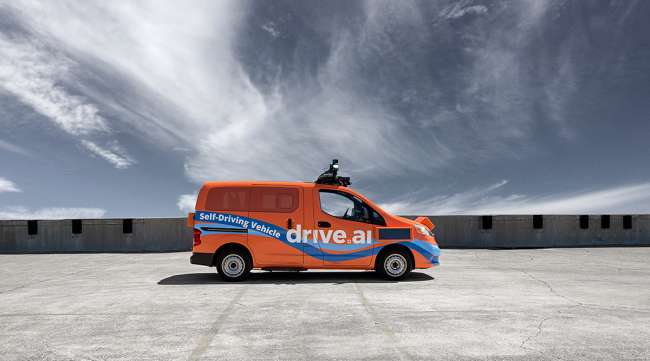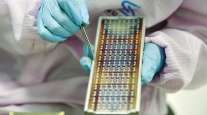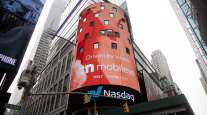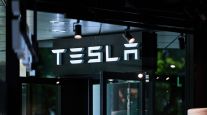Nation’s First Self-Driving Car Service for the Public Coming to Texas

FRISCO, Texas — The nation’s first self-driving car service for the public will begin here in July.
It’s the latest step toward improving mobility in one of the fastest-growing areas of one of the fastest-growing cities in the nation where traffic congestion is an ongoing challenge.
The service is made possible through a unique public-private partnership among California-based Drive.ai, the city of Frisco, the Denton County Transportation Authority and the private developments for Hall Park, The Star and Frisco Station. They are all part of the newly formed Frisco Transportation Management Association.
Self-driving cars are just the beginning.
RELATED: Minnesota safety officials look to driverless vehicles to reduce fatalities
“Frisco is making a statement that we’re going to lead in innovation,” Mayor Jeff Cheney told a crowd of dignitaries and media gathered for a demonstration May 7.
The initial service will be available to transport the 10,000 employees working at offices at Hall Park to retail and dining options nearby at The Star in Frisco, where the Dallas Cowboys are headquartered. For many, the distance (just shy of a mile) is too far to walk but too short to warrant a trip by car.
People will be able to request a ride through a smartphone app. The service will be free during a six-month test run. Negotiations are underway to bring a more permanent service to Frisco after that.
Texas is one of 10 states approved last year by the U.S. Department of Transportation to allow companies to test automated technology in vehicles. Arlington already uses autonomous shuttles as part of a pilot program called Milo. The shuttle moves at 10-12 mph and runs on an off-street path in the entertainment district.
Frisco’s self-driving car service would be the first service available to the public on public roads.
RELATED: Self-driving car pioneers are slowing down after crashes
The biggest hurdle for riders? Trusting the artificial intelligence behind the wheel. Some people still are hesitant about the technology. The industry as a whole took a hit in March when a pedestrian was killed in Arizona by a self-driving SUV operated by Uber.
Safety is a priority, Andrew Ng of Drive.ai said at the Frisco event. And that’s why working with local authorities is vital. The company will be able to coordinate with first responders, help with public awareness campaigns and offer routes that add value. Local officials also will coordinate with the company when there are special events or road closures that affect traffic flow.
“Together we can make this thing as safe as possible,” Ng said.
Artificial intelligence is great at maneuvering fixed routes but has difficulty recognizing hand signals from a construction worker directing traffic, Ng explained. That’s where local leaders can step in and help.
He asks people to be aware of the bright orange self-driving vehicles, be lawful and be considerate around them — just like drivers are when they see school buses on the road. The vehicles also have four external screens to communicate with pedestrians and other drivers on the road.
RELATED: Autonomous cars’ shortcomings revealed in California DMV reports
Initial trips will have a human available in the driver’s seat of the orange vehicles to take over at a moment’s notice. The next stage puts the person in the passenger seat as a chaperone to answer passenger questions. The final stage lets the self-driving cars go solo with a remote operator available if needed.
Drive.ai is shouldering all of the costs involved in the pilot project. A dollar amount is not being disclosed.
“We’re invested in the region,” said Conway Chen, vice president of business strategy for Drive.ai. “We see this as a great test ground for other cities.”
James Cline, president of the Denton County Transportation Authority, said he believes self-driving vehicles have a place in public transportation and mobility. Whether that role is transporting people on that last mile from a bus stop to their house or replacing buses entirely remains to be seen.
“The challenge is going to be getting people to accept it,” he said.
Self-driving cars also could put a dent in the thousands of fatalities on the nation’s roadways caused by drivers. These autonomous vehicles “never look at their phone, they never take a drink and they’re always awake,” Cline said.
Russell Laughlin is executive vice president of Hillwood Properties, the developer for Frisco Station. A self-driving car service is just one more way to attract companies that are looking for new ways to recruit and retain their employees, he said.
“You’re building this technology, integrating it into these communities from the ground up and it’s the only place that it exists in North Texas,” he said.
Craig Hall, the developer behind Hall Park, calls the project a “tremendous breakthrough” in mobility.
“This is going to lead us into the future,” he said.
Distributed by Tribune Content Agency, LLC




